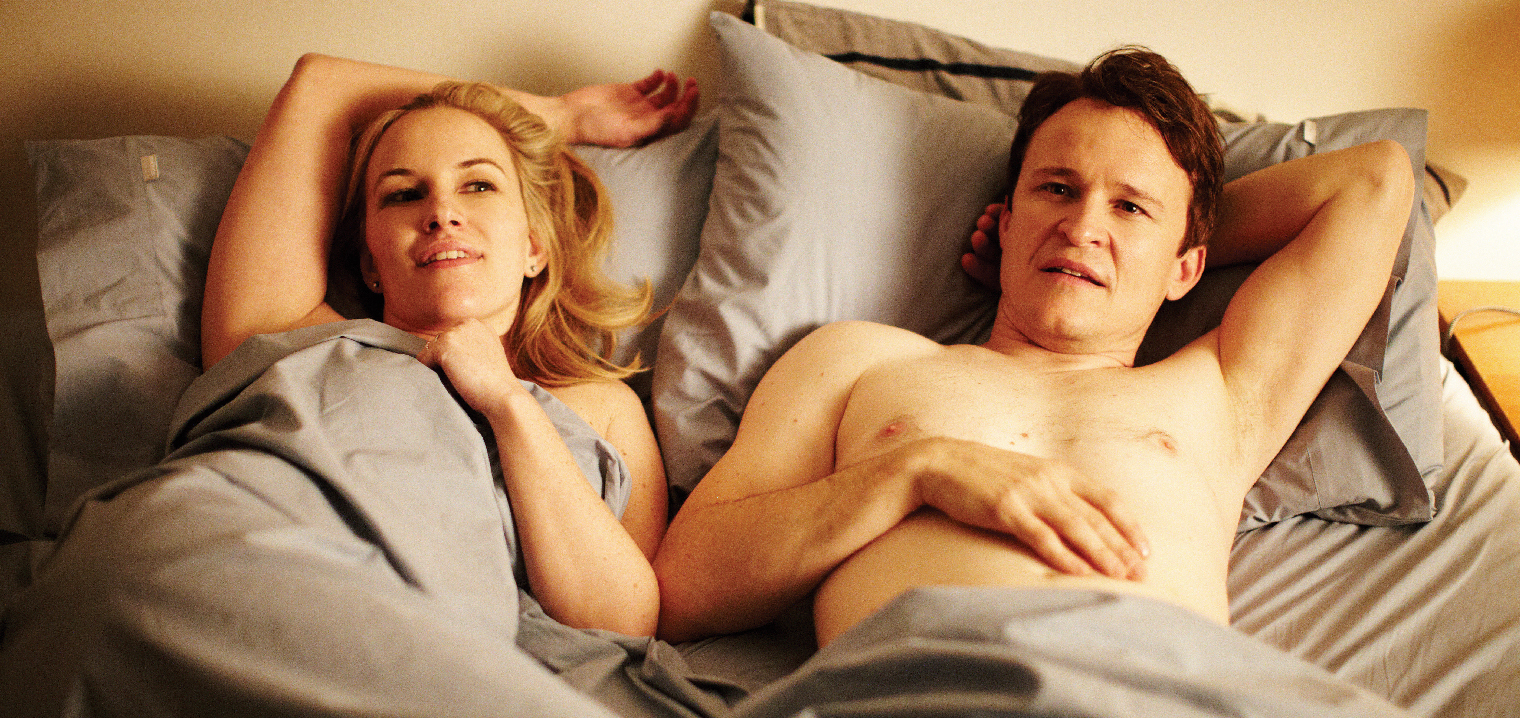
The Little Death, or its original French usage, La petite mort is a euphemism most commonly used to describe the ethereal, post orgasmic state that some people admit to experiencing. However, you’d be more than forgiven if you were to use it to describe how you felt after just watching this film.
Actor/director Josh Lawson has conceived an exceptionally witty and observational narrative revolving around the lives of four suburban couples (Paul & Maeve, Dan & Evie, Richard & Rowena, Phil & Maureen) and one unusual pair communicating through sign language (Sam & Monica). Lawson deftly showcases that we all have a side that we wish would always remain private. He cleverly subverts our conceptions of the ‘norm’ and quickly establishes that there is no such thing as your ‘perfect’ next door neighbour.
The film revolves around the subject of fetishes. Prima facie, this doesn’t appear to be all that refreshing. Actors have made careers out of playing characters with all kinds weird and fascinating fetishes. Just look at the career of James Spader – I’m just waiting for the big fetish reveal on The Blacklist. Quite astutely, Lawson doesn’t let the fetishes themselves be the focus. The film’s focus is very much how we react to those fetishes. How, if you have an extreme fetish, it can very well have unintending consequences for not only yourself, but also the people around you.
The film goes a long way in ‘normalising’ fetishes. Fetishes aren’t the sole territory of deviance. And the social construction of them as such is an incredulously flawed concept. Lawson chooses to focus on some unusual paraphilias for effect, such as – dacryphilia (arousal by watching tears and/or sobbing), somnophilia (sexual arousal when near a sleeping person) and scatalogia (arousal by making obscene telephone calls). In the question and answer session held after the premiere of the film, Mr Lawson stated that his goal was to focus on paraphilias that would require some planning or foresight. It may seem like a purely cinematic decision to focus on some unusual and extreme paraphilias, but upon reflection, research suggests that these might not be that uncommon after all.
The danger here was of course, that the characters could have easily become caricatures of themselves, by virtue of their fetishes. But commendably, that never happens. The script is definitely the winner here. It has a clear sense of direction and purpose and film is not intending to just get a few cheap laughs.
The most impactful Absurdism goes beyond the superficial laughs and explores the humanity of the subjects that it depicts. The Little Death though laced with situations that illicit a laugh out loud kind of humour, is not exclusively about the gags themselves. Beneath the humour lies an exploration of shame and discomfort that arises from living with paraphilia on a daily basis. It isn’t a singular instance that only affects a part of your life, that you can somehow just lock away. The film explores instances where a paraphilia can almost govern your life. For example, the fact that Phil can’t sleep at night because he’s just so aroused by watching his wife sleep. So, he finds all the places in his workplace to doze off – from board meetings, to his cabin desk, to even the bathroom cubicle! It’s a beautiful examination of the cruelty in absurd humour, where one person’s misery is another person’s laughter.
The ever present conflict between the what the characters need and what they want is the catalyst that drives the narrative forward. Some resort to very creative measures to avoid the possibility of social condemnation. The new neighbour Steve (a wonderful short appearance by Kim Gyngell) bakes Golliwogs as gifts when going to introduce himself to the neighbours on the street, so that he can admit to a fact that would invariably bring with it the possibility of social backlash. The film asks the question, are we brave enough to admit who we are – even to ourselves – let alone others? The lengths that we can go to avoid social judgment are at once relatable and hilarious, but also, work as an implicit social commentary that elevates the film from a ‘no brainer’ laugh out loud film to a satirical take on our conceptions of the ‘normal’.
All the cast members have done a phenomenal job. Josh Lawson and Bojana Novakovic (who play Paul & Maeve) have an endearing chemistry that makes the pair intensely likeable. Damon Herriman and Kate Mulvany’s (Dan & Evie) experiments with role playing lead to hilarious situations. Kate Box’s cruelty towards Patrick Brammall (Rowena & Richard) makes you almost feel sorry for him. Alan Dukes as the somnophiliac Phil was just phenomenal and his scenes with Lisa McCune evoke a real sense of pathos. Erin James as Monica, the phone call operator for the deaf, is a natural in front of the camera and her extended sequence with T.J. Power (Sam) that forms the climax of the film is full of raw energy and emotion.
I’m almost afraid to call The Little Death a romantic comedy or even a sex comedy, because both these terms have a lot of conventional baggage associated with them, while the whole idea of The Little Death is to subvert convention. So I’ll stick with my inclination that it is a black comedy; a sort of film which definitely hasn’t been made in Australia before. Josh Lawson has provided a sneaky glimpse into the lives of your not-so-deviant neighbours, and who knows, perhaps even a glimpse into your own home?
Around the Staff:
| Dominic Barlow |
